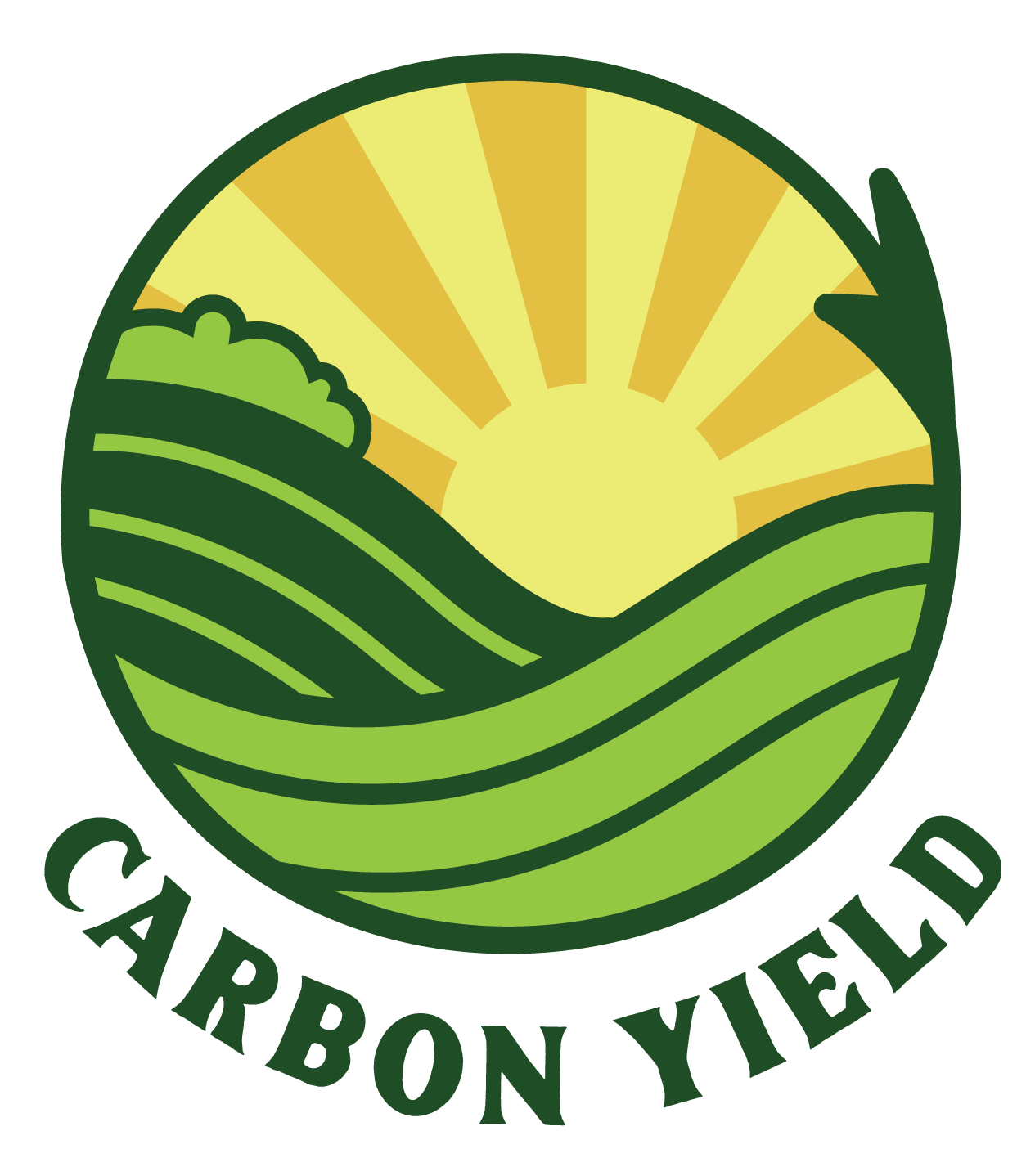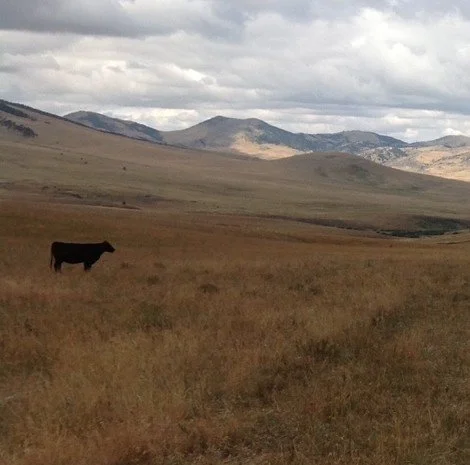We guide farmers and ranchers to soil health and financial stability
Over two decades of experience generating wealth and climate impact in rural communities
The Financial Case for Regenerative Agriculture
It has simply become too expensive to farm or ranch conventionally. Degraded soil, expensive fertilizers, and risky pest management practices have depleted farm incomes and injected uncertainty into our farm communities.
Regenerative agriculture can improve soil health while also restoring a farmer’s financial health. For example, growing cover crops and extending crop rotations naturally sources nutrients, reducing fertilizer costs while providing new sources of crop and carbon revenue. Rotational grazing protects the soil from erosion, enables it to retain moisture, and reduces greenhouse gas emissions (GHG).
Carbon Yield advocates for farmers and ranchers in the new regenerative economy, enabling them to leverage new value streams that make regenerative farming profitable and secure a farmer’s legacy on their land.
Carbon Yield Helps Farmers Benefit from Regenerative Agriculture
Embrace conservation in pursuit of farm stability
Access new revenue for financial resilience
Build an enduring legacy on your land through soil health
Discover how regenerative practices can boost your farm's profitability
How Carbon Yield Supports You
REGENERATIVE PRACTICE GUIDANCE
Carbon Yield brings extensive experience in the regenerative farming practices that enhance soil health and reduce emissions. Through knowledge sharing and thoughtful, informed guidance, we remove barriers for farmers and ranchers who are beginning their soil health journey or deepening their conservation practices. Whether you are a row crop operation experimenting with cover crops or a dairy operation, establishing pasture to graze and incorporating feed additives to reduce enteric methane, we can help you find the practices that make a meaningful impact. Become more resilient to water risks, improve soil health, and resist pests and invasive species.
INCENTIVE PROGRAM SUPPORT
We support producers in data collection and navigating complex programs, ensuring you meet the requirements to get compensated for your efforts. Benefit from the support of a team that understands the nuances of your livestock, dairy operation, or diverse crop rotation. We help producers report on a variety of environmental metrics to supply chain partners and investors, and explore new opportunities in regenerative agriculture. Drawing on more than two decades of experience, our team specializes in managing carbon offset and inset projects from start to finish, connecting the dots between program sponsors and the boots on the ground. Our experienced team has generated over two million tons of carbon credits and negotiated premium carbon credit agreements worth more than $100 per ton.
Clients & Partners
Carbon Yield collaborates with trusted agricultural organizations to ensure that farmers and ranchers have the guidance and resources they need to succeed in emerging sustainability programs. Here are a few selected projects that showcase our work.
McDonald’s USA
Carbon Yield, along with McDonald’s USA, National Fish and Wildlife Fund (NFWF), and Kateri are launching a new Grassland Resilience and Conservation Initiative. Carbon Yield leads and manages this partnership, which will facilitate environmental impact across up to four million acres of grazing lands. The more than $200 million investment from McDonald’s USA, NFWF, and key McDonald’s U.S. suppliers represents the Golden Arches’ most significant investment in regenerative agriculture in company history and will unlock an additional federal conservation funding across ranching communities in as many as 38 states. This work bridges the divide between traditional conservation and market-based sustainability programs, enabling the restoration and protection of new lands while deploying novel monitoring and accounting solutions that quantify and claim the ecosystem outcomes generated by our ranch partners.
Grassland 2.0
The Grassland 2.0 project builds local networks of farm producers to design farm systems that create meaningful land stewardship and rural development outcomes. Heifer grazing is one solution that was elevated during extensive stakeholder workshops with Wisconsin farmers. By transitioning dairy heifers from expensive confinement systems to well-managed rotational pastures, dairy farmers can reduce feeding costs and generate economic impact closer to home. Carbon Yield partners with Grassland 2.0 to help quantify the ecosystem benefits of heifer grazing and help incorporate the practice into dairy industry greenhouse gas incentive programs.
The project provides farmers with access to high-quality forage while improving animal health and first-lactation milk production performance. Grassland 2.0 also helps farmers build long-term resilience by enhancing soil health, reducing the costs of synthetic fertilizers, and creating new revenue opportunities through custom grazing services. With public cost-sharing covering infrastructure such as fencing and water systems, the project makes regenerative practices accessible to current dairy producers, custom graziers, and anyone with livestock experience looking to enter or re-enter the industry, while building climate-smart operations that appeal to forward-thinking corporate partners.
Dairy Management, Inc.
Carbon Yield partners with dairy farmers to help them navigate and access emerging GHG reduction programs and cost-share incentives. We serve as an intermediary to bridge the gap between complex Scope 3 carbon programs and the agricultural community. We create accessible guidance documents, educational resources, and multimedia presentations that enable cooperatives to effectively administer these initiatives for their farmer suppliers.
Through our collaborative approach with industry organizations like Dairy Management Inc. (DMI, the U.S. Dairy Trade Association), Carbon Yield translates technical program requirements into practical, business-focused strategies. These strategies help dairy producers participate in GHG programs while meeting their operational and financial objectives. This approach ultimately makes carbon market opportunities more accessible to small and mid-sized agricultural operations. Our collaboration results in a collection of public resources on dairyconservation.org that support the evaluation of carbon programs and inform producers about conservation practices and their eligibility within GHG incentive structures.
Michigan Climate Smart Farms Project
Carbon Yield transforms climate action into revenue opportunities for farmers and ranchers through the Michigan Climate Smart Farms Project. Using comprehensive data collection and market access support, Carbon Yield helps producers efficiently document their farming practices using both digital records and remote sensing technology. We then run established models (like COMET and HabiTerre) to quantify soil carbon gains and GHG reductions.
This streamlined process enables farmers to access multiple value streams from the same dataset. These include carbon offset markets, corporate sustainability programs, and state certification programs. The approach minimizes paperwork burdens and maximizes farmers' ability to monetize climate-smart practices across row crops, grazing systems, and diversified operations.
This project has also allowed Carbon Yield to partner with four Michigan Conservation Districts, the Michigan Association of Conservation Districts, and the Michigan Department of Agriculture and Rural Development. Together, we coordinate the deployment of incentive payments, technical assistance, and data collection.
Sustainable Land Management
SLM and Carbon Yield have partnered since 2020 to better connect SLM's extensive investments in regenerative organic agriculture with financial opportunities in carbon markets. SLM manages more than $760 million in farmland, which they lease to exemplary organic farmers experienced in transformational land management practices.
Together, we are breaking down the complex barriers that have traditionally kept farmers from participating in carbon programs. We provide hands-on data collection, technical translation services, and seamless program enrollment across SLM's network of farm operations. Our collaborative approach ensures that farmers don't have to navigate complicated carbon market requirements on their own.
Carbon Yield handles technical data management and program transitions, while SLM coordinates communication and sets clear expectations. This reduces the administrative burden on busy producers. By leveraging existing farm data and running parallel analyses across multiple carbon platforms, we enable farmers to compare opportunities and maximize potential revenue streams. This approach doesn't disrupt their day-to-day operations.
This partnership creates a bridge between agricultural expertise and the complexity of the carbon market. It enables farmers to capture the economic value of their sustainable practices while focusing on what they do best—growing crops and stewarding the land.









